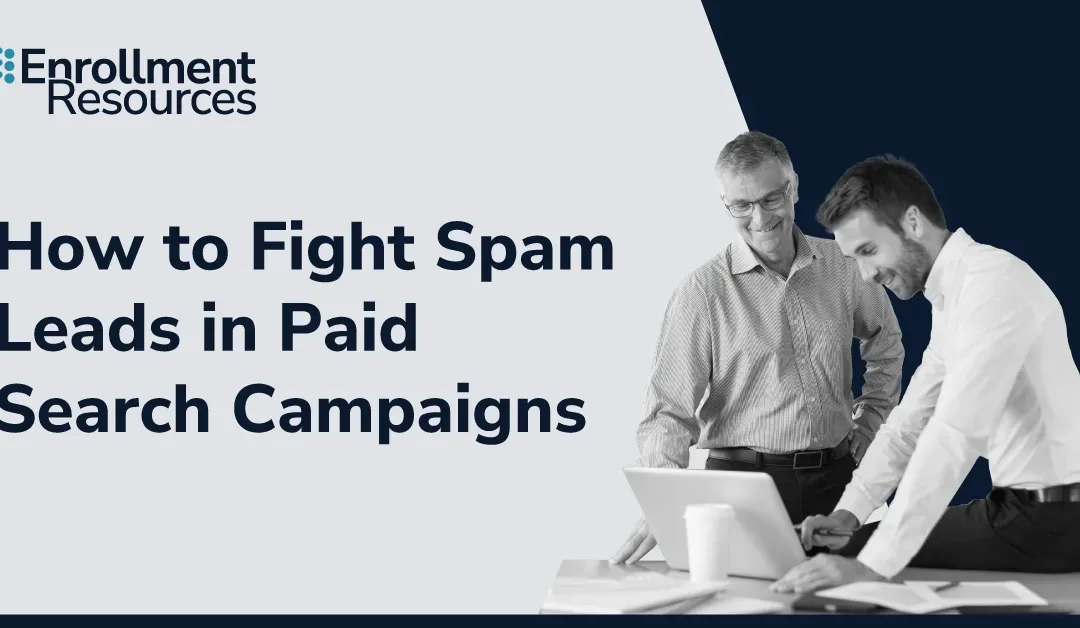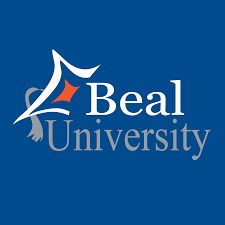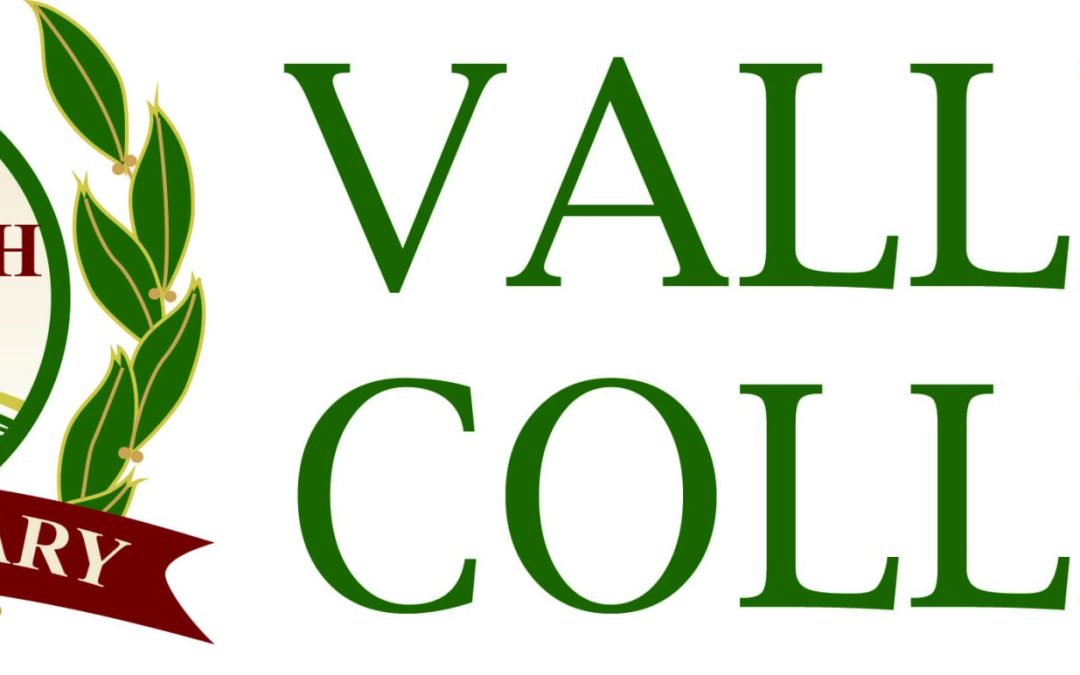Resources
Over 20 years of testing and innovation in EDU
Top Articles

How to Fight Spam Leads in Paid Search Campaigns
If you're running paid search campaigns, you've likely noticed a troubling trend: spam leads are on the rise again. After a temporary dip in 2023 thanks to Google’s AI-driven Smart Bidding and improved lead validation tools, spammers have adapted, and they're back...

Top 3 Pillars of Digital Marketing for Higher Education
If you’re tasked with how to increase college enrollment, you likely know all too well the challenges today’s schools face. Between regulatory concerns, increased advertising costs and industry-wide dips in enrollment, schools need cost-effective ways to connect with...

The Hidden Motivations Of Your Prospective Students
We compiled data from over 250,000 prospective students who had completed a detailed online survey delving into their goals, frustrations, motivations and current life/work situations.
The EDU Enrollment Performance Insights Series
Take advantage of over 20 years of insights into education marketing, admissions and enrollment management best practices – free for you to use in your processes at your school!
Subscribe to get practical, cost-effective tips on education marketing, admissions and enrollment management best practices delivered straight to your inbox!
- MARKETING – 5 Tactics to Increase Lead to Start
- ADMISSIONS – Set Your Team Up For Optimal Success
- ENROLLMENT MANAGEMENT – Strategies of Top Performing Schools
With your subscription, you’ll also be the first to know about our upcoming informative webinars featuring leaders in higher education sharing how you can get the most out of your existing budget through small process improvements.
Case Studies

74% Increase in Website Leads for Beauty School
Cosmetology & Spa Academy sees a 74% boost in website leads after partnering with Enrollment Resources, making digital transformation a ‘no brainer’ for their expansion and enrollment goals across four Illinois campuses.

University Sees High ROI on Marketing Through Strategic Lead Optimization Plan
Beal University leveraged Enrollment Resources for a 282% lead increase and 15% more enrollments, revolutionizing marketing and admissions.

Enrollment Up 35% & Millions Saved on Advertising
IntelliTec was able to cut their traditional media advertising budget by millions of dollars and were able to not only maintain their lead flow but also grow prospect inquiries month over month.

132% Increase in Student Enrollment Through Focused Digital Marketing
Valley College saw a 132% increase in student enrollment after partnering with Enrollment Resources. Their focused digital marketing strategy led to a 617% increase in paid search leads and a 154% increase in website lead conversion.
Industry Insights

The Hidden Motivations Of Your Prospective Students
We compiled data from over 250,000 prospective students who had completed a detailed online survey delving into their goals, frustrations, motivations and current life/work situations.

Previous Education & Enrollment
I want to like nectarines. There’s a nectarine tree in my parents’ yard and every summer they rave about the sweet fruit fresh off the branch. But I’ll never know, because years ago I bit into one and didn’t realize that, in addition to a pit, this particular...

Focus on Fulfillment
On an airplane. At a party. Ran into an old friend. In line for the bathroom. These are just some of the places you might be asked, “so, what do you do?” It’s the ubiquitous question of our times. We ask one another this question because “what we do” for a living goes...

35% of Prospect Student’s Can’t Do This ONE Thing
EDU Research Reveals Surprising Barrier to Enrollment “Dream Big.” “Reach for the Stars.” “If you believe it, you can achieve it.” These types of sayings feel omnipresent in career counseling offices, right up there with the frazzled kitten precariously dangled from a...
Education Marketing

How to Fight Spam Leads in Paid Search Campaigns
If you're running paid search campaigns, you've likely noticed a troubling trend: spam leads are on the rise again. After a temporary dip in 2023 thanks to Google’s AI-driven Smart Bidding and improved lead validation tools, spammers have adapted, and they're back...

Top 5 Questions to Ask BEFORE You Hire a Digital Marketing Agency
Discover the top 5 crucial questions to ask before partnering with a digital marketing agency for higher education. Learn about asset ownership, transparent reporting, conversion strategies, data security policies, and contract terms to ensure the best growth and enrollment outcomes for your school.

Top 3 Pillars of Digital Marketing for Higher Education
If you’re tasked with how to increase college enrollment, you likely know all too well the challenges today’s schools face. Between regulatory concerns, increased advertising costs and industry-wide dips in enrollment, schools need cost-effective ways to connect with...

The Surprising Way You May Already Have the Leads You Need to Increase Student Enrollment
Why “Stale” Leads May Be Your School’s Hidden Asset when it Comes to Student Recruitment.
News & Announcements

3 NEW Student Recruitment Tools To Convert More Prospects Into Successful Students
Boost your student recruitment with Enrollment Resources’ three innovative tools: The Conversion Toolbar, CRM Browser Extension, and Lenses with AI Insights. Personalize prospects’ journey, gain insightful data, and overcome enrollment hurdles.

We’re Top 3% for Google Ads Management
Enrollment Resources is proud to announce we’ve been named a Google Ads Management Premier Partner. This status comes as recognition of top-tier results achieved for clients through paid search, compared against all Google Partners in 2022.

Increased Spam Leads on Google Paid Search
For online marketers, garbage “spam” leads pose a significant threat to your bottom line. Left unchecked, spam leads can inflate the cost of your paid search campaigns and dramatically compromise your conversion rate ROI. Since summer of this year, the Paid Search...

Gregg Meiklejohn Retires; Shane Sparks to Serve as President & CEO
VICTORIA, British Columbia – Enrollment Resources Inc. announced today that Gregg Meiklejohn has retired from his role as CEO. Gregg Meiklejohn co-founded Enrollment Resources with Shane Sparks in 2003. Over the past 19 years, the company has emerged as a leading...
The Hidden Motivations of Prospective Students
We compiled data from over 250,000 prospects in North America to provide insight into prospective students' core motivations, personality style, and triggers that drive buying decisions.
Increase leads and enrollments without increasing your budget
Discover how our conversion optimization tools can quickly and cost-effectively increase lead generation and boost enrollment.
Your prospects are already exploring your school online. Get more of them excited to inquire and book a tour today.
Try it Risk-Free for 90 days. We guarantee results!
